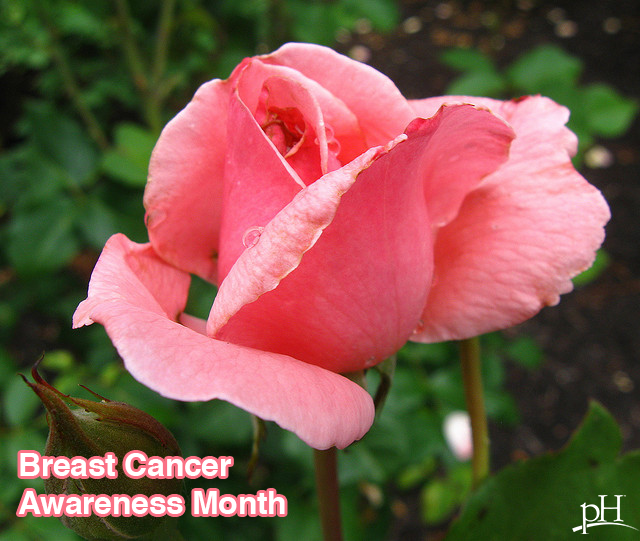Go pink! Breast cancer gene test may save lives
11 years ago | Cancer
Photo credit: Colin Charles, the Breast Cancer Network, Creative Commons
By pH health care professionals
Breast cancer is the second leading cause of death in women in the United States. It will affect one in eight women in their lifetime. About 5-10 percent of breast cancers are hereditary. But the good news is that tests can determine whether a woman has inherited the mutated genes, BRCA1 and BRCA2, which cause breast cancer.
This testing is important because nearly 10 percent of women under the age of 40 with breast cancer have this mutation. Women who carry this mutation usually have a first- or second-degree relative who had premenopausal breast cancer or ovarian cancer at any age.
A woman with a BRCA1 gene has an 87 percent risk of developing breast cancer and a 44 percent risk of developing ovarian cancer by the time she is 70. The risk for women with a BRCA2 gene mutation is estimated at 84 percent for breast cancer and 27 percent for ovarian cancer.
When actress Angelina Jolie tested positive for one of these markers, she opted to be proactive and remove the possible source of cancer. She chose to publicly share her decision to undergo a preventive double mastectomy, leading to a surge in breast cancer testing (“the Angelina Jolie Effect”).
So who should be tested for this gene marker?
People with any of the following personal or family history may be candidates for testing:
- Breast cancer before age 50
- Ovarian cancer at any age
- Both breast and ovarian cancer in an individual at any age
- Two or more breast cancers in a family, one under age 50
- Male breast cancer at any age
- Two primary breast cancers in an individual at any age
- Women of Ashkenazi Jewish descent with breast or ovarian cancer at any age
- A previously identified BRCA mutation in the family
The BRCA1 gene was the first to be mapped, and BRCA2 followed it shortly after. These mutations have also been associated with increased risks for other cancers such as prostate, gallbladder and bile duct cancers.
Consider how you can be proactive and talk to your doctor or pH health care professionals about appropriate tests based on your risk factors and family history. Remember, the earlier a disease is diagnosed, the more likely it is that it can be cured or successfully managed. Managing a disease, especially early in its course, may prevent or delay serious complications.
Enjoy Your Healthy Life!
The pH professional health care team includes recognized experts from a variety of health care and related disciplines, including physicians, attorneys, nutritionists, nurses and certified fitness instructors. This team also includes the members of the pH Medical Advisory Board, which constantly monitors all pH programs, products and services. To learn more about the pH Medical Advisory Board, click here.







